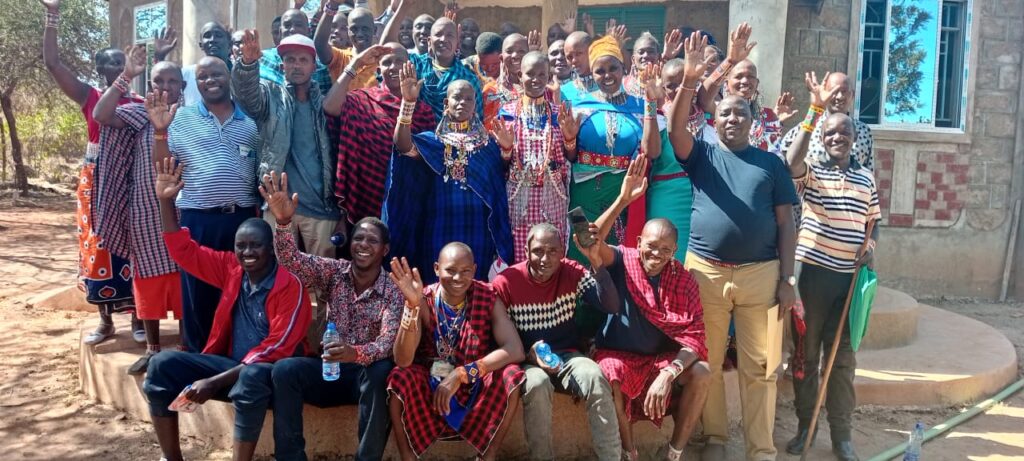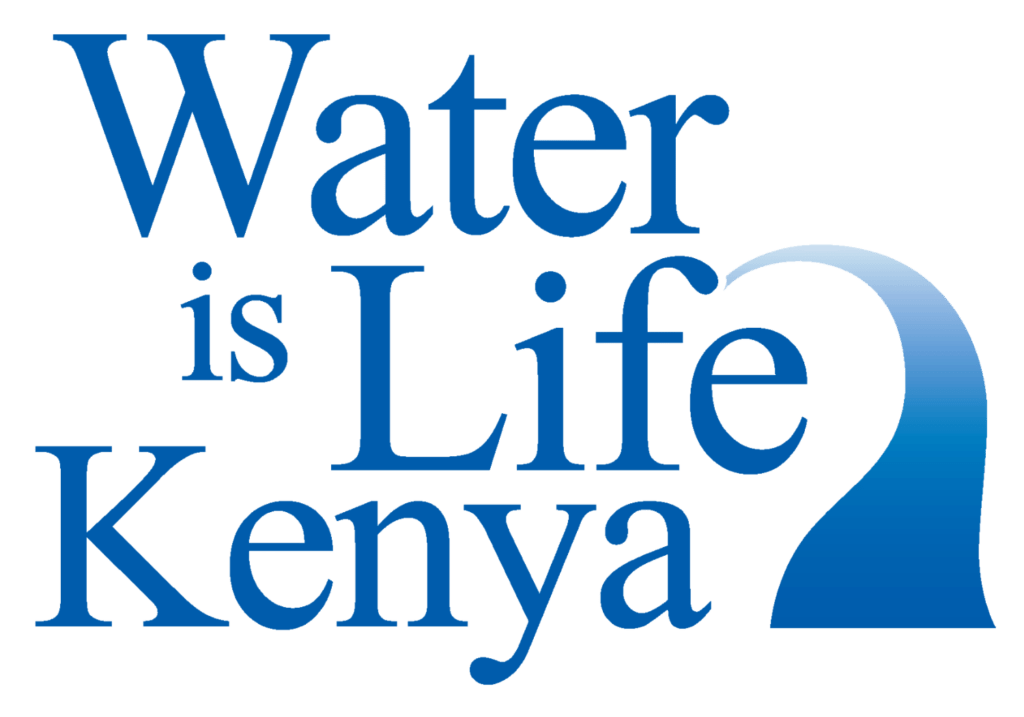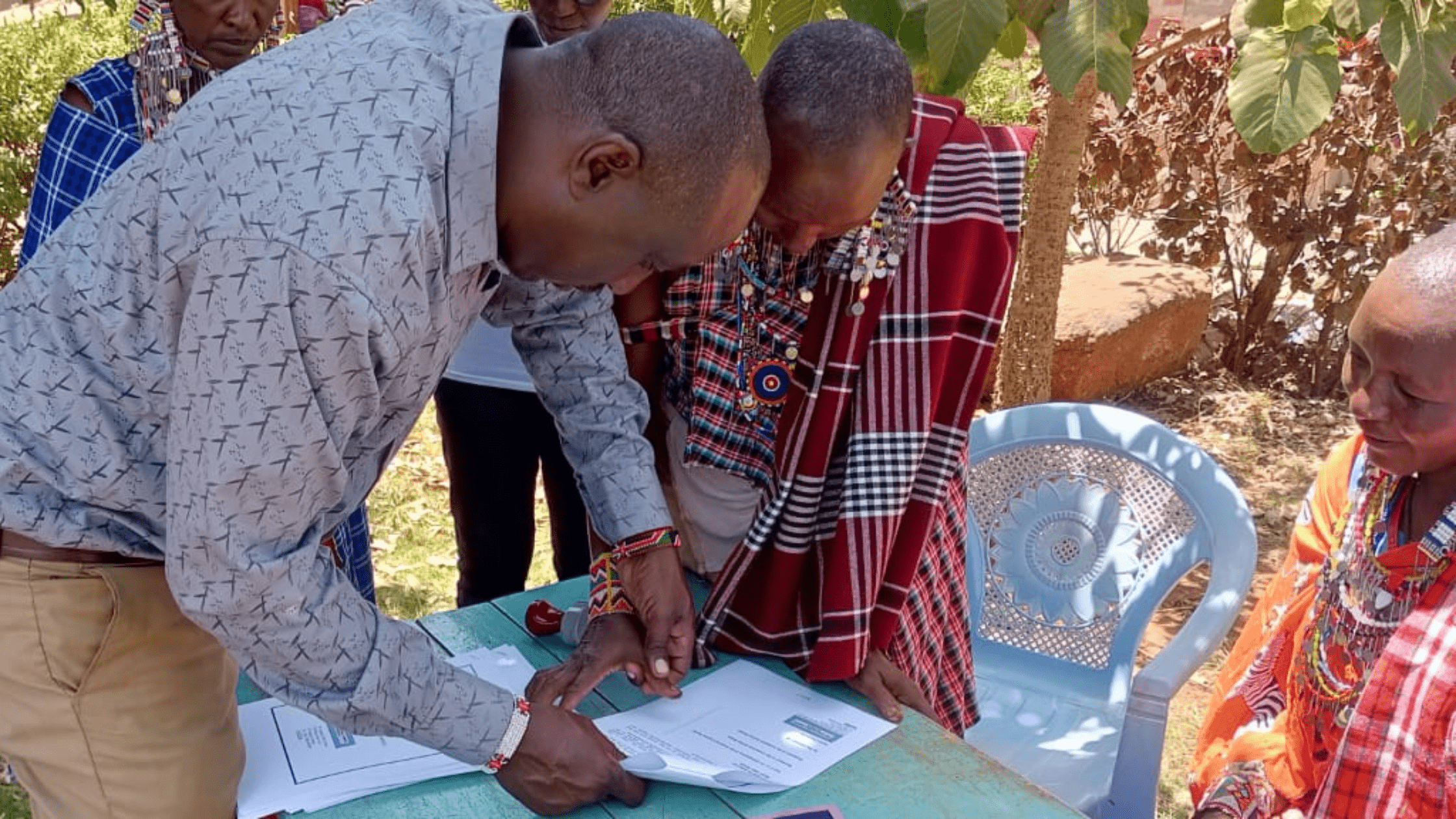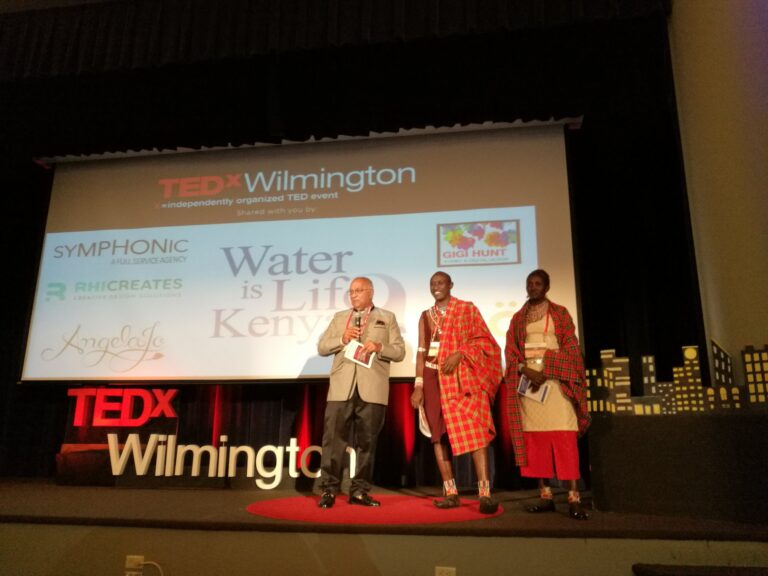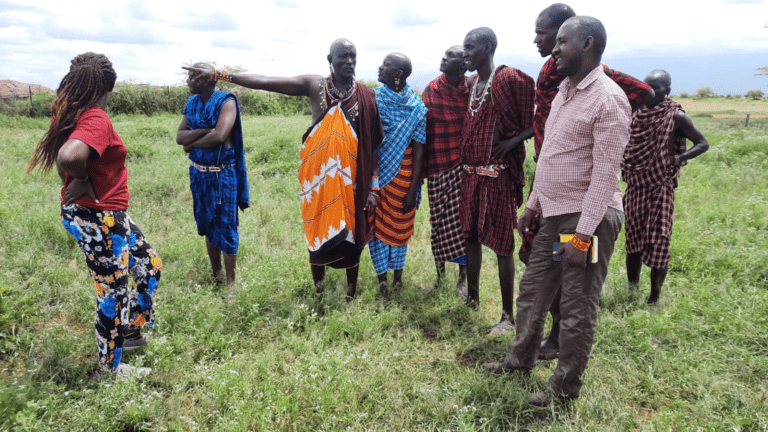Cows are essential to Maasai culture, economy, and status. This is why Water is Life Kenya’s (WILK) Livestock as a Business (LAB) program combines traditional livestock-raising techniques with modern business skills training to help Maasai herders get a better yield on their cattle. Let’s take a look at what our newest LAB groups have been up to since they began training last year.
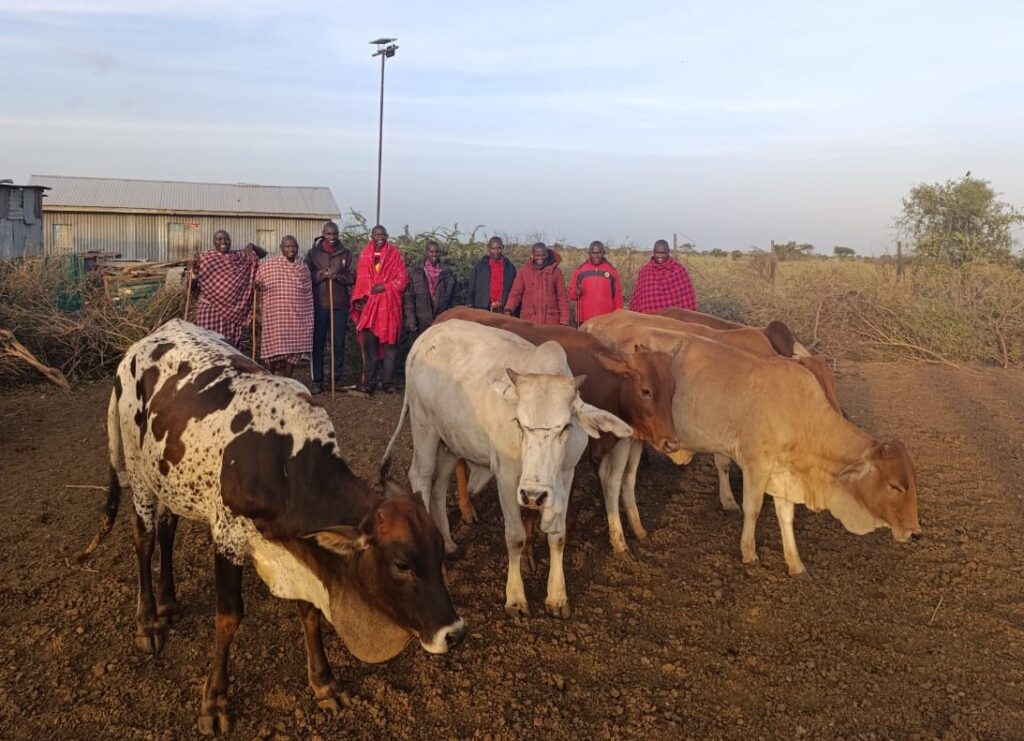
LAB Training
There are five new LAB groups this year, each with 10-15 members, and they’ve been hard at work learning as much as they can to improve the quality of their livestock.
In September and October, members attended Disease Theory training sessions with our WILK instructors. In these sessions, LAB groups learn the importance regularly spraying against ticks, giving cows vaccinations, and avoiding grazing areas used by infected cows.
We also noticed something remarkable during these LAB trainings. Many of the new participants took part in our Grass Management trainings over the summer as well. As a result, these groups have been very serious and motivated in their LAB sessions: there has been full attendance, everyone shows up on time, and they’re all ready and willing to learn.
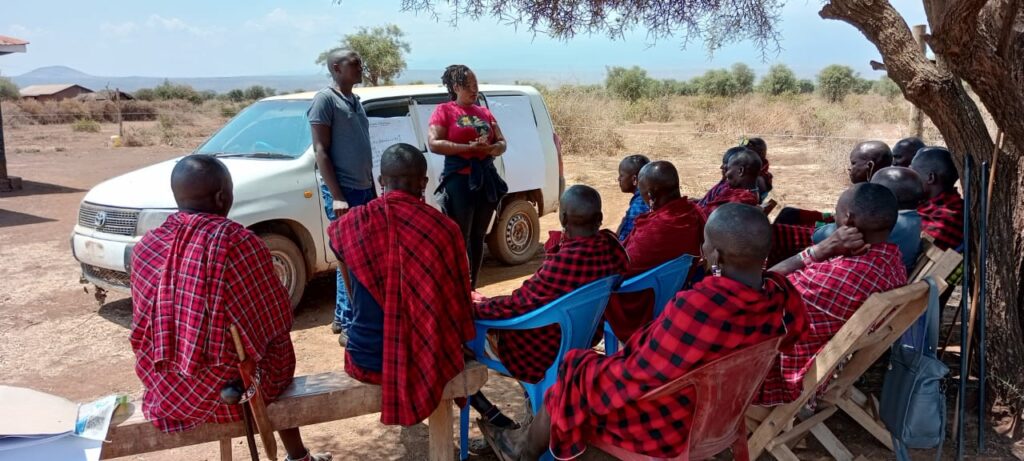
In mid-October, we hosted our annual Business Skills Seminar in Kimana for three days of transformative learning. During these sessions, we discussed important topics including Buying and selling livestock: How to bring cows to market and make smart sales decisions; Record keeping: Managing finances and tracking progress; Budgeting for success: How to keep animals healthy and alive, especially in tough conditions, with a focus on disease control and prevention; Crafting a business plan: Turning ideas into reality; and Marketing and selling strategies: The 6 P’s – price, people, place, product, profit, promotion.
Since 2011, our LAB program has empowered Maasai families to manage their livestock better, boosting family incomes and ensuring the sustainability of our WASH projects. This program works, with loans yielding an average of 35% profit and being repaid 99% of the time. For the five new groups, this round of MOU loans is the first of four possible loans to receive through the LAB program.

MOU Loans
In November, after our new LAB groups received all of their training, they were more than ready for their loans. But before groups can sign the MOU to receive 200,000 Kenyan Shillings (about $1,600 USD), they have to come prepared. They need to have their business plan, their signed family consent form (to confirm collateral), a down payment, and the oversight of their chief.
The MOU outlines the requirements for each group’s loan—that they will use the money to buy livestock, that they will practice their new skills on those livestock, that they will sell them on time (by the end of June), and that they immediately repay WILK upon selling. Ultimately, these loans provide both new and returning LAB groups with the resources to grow their businesses and further support their communities.
Because Maasai love their animals, there is a cultural habit of not wanting to sell livestock. This leads to people keeping livestock too long, even when rain isn’t predicted. Building the habit of selling on time is key to run a successful livestock business.
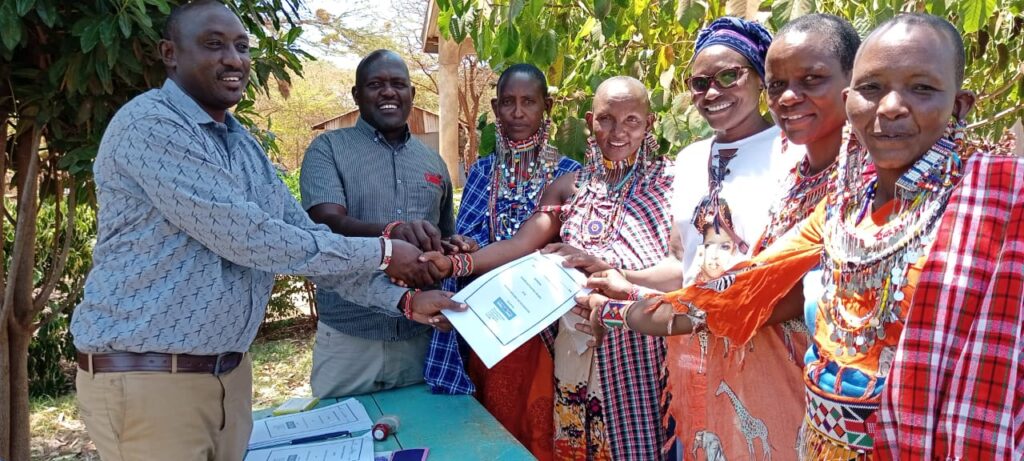
Early Results
This week, WILK field officers monitored the new groups for the first time. Not only do they check on the health of the cows, but they also determine group cohesion and activity. Because LAB brings Maasai herders together to mitigate risk and spread out work, group members must delineate responsibilities and pull money together for the benefit of everyone. There are regular group meetings that each member attends so that cows stay healthy and can be sold for a higher price than they were bought.
So far, one group has stood out as an example for the others to follow. The Empusel Naretoi group has vaccinated all of their cows for Foot and Mouth Disease as well as Lumpy Skin Disease, both of which can be fatal for cows or prevent cow fertility. They are meeting regularly and contributing to the group’s money box. There even is a woman whose husband has given them permission to store grass in a spare room of the house.
We’ll continue to monitor the groups up through the summer, when the cows are to be sold at the market. Then, when the next cows are purchased, monitoring will continue. We have high hopes for these newly-trained livestock keepers!
